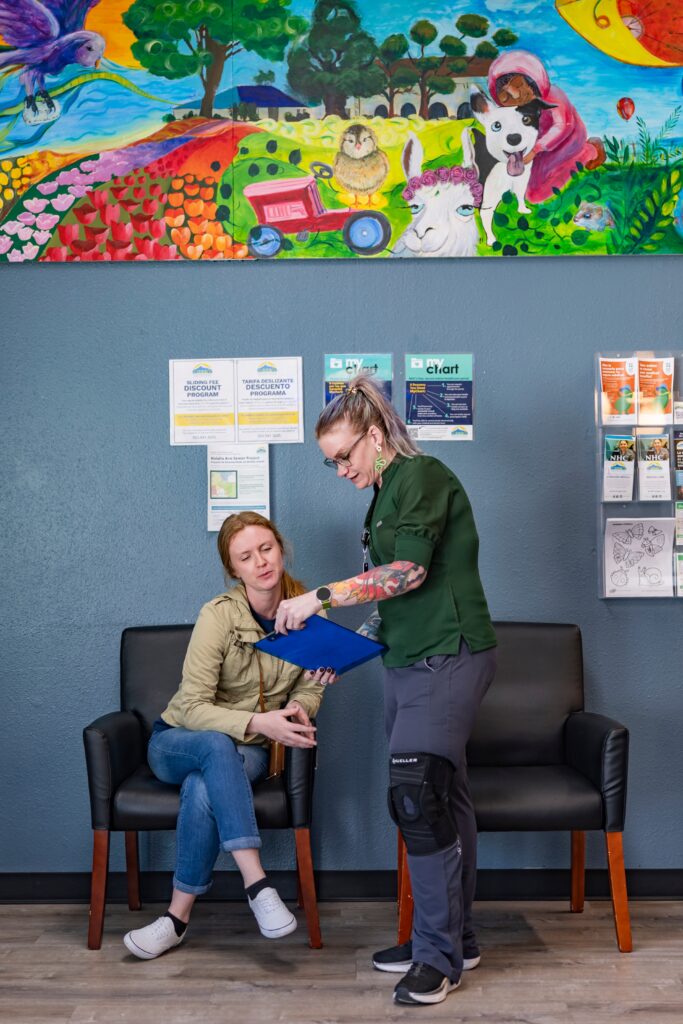Whole Person Care In Action: The Role of Screening for Resource Needs
At Neighborhood Health Center (NHC), we know that health is more than test results and prescriptions. Where you live, what you eat, how you get to the clinic, and if you feel safe and supported all affect your health.
That’s why we ask patients to complete a short form each year that screens for resource needs. It’s quick, easy, and incredibly important for your care. It gives us a better understanding of your day-to-day life so we can offer care that fits your real needs. It helps us help you.

What Does the Screening Cover?
The whole health screener is a short form we ask all adult patients to fill out once a year. It asks about non-medical needs that can affect your health, like food, housing, and transportation.
Your answers help us know if you might need extra support that may not come up in a regular appointment with your provider. These screeners help us fully see the whole picture of your life outside of a 20 or 40-minute appointment.
We know these questions may feel personal. But your answers help us connect you with free or low-cost services you might qualify for — resources that can make a big difference in your health and well-being.
“The screener helps me prioritize needs, personalize support, and connect patients to the right resources,” says Yesi Olvera, a Community Health Navigator at NHC Tanasbourne Medical & Dental Clinic. Community Health Navigators meet with patients to address non-medical care needs. “It builds trust with patients and encourages open communication. It also helps their care teams better meet their health goals.”
Related: How NHC's MES Team Helps More Oregonians Access Healthcare
Care That Fits Your Life
Your answers help us adjust your care in meaningful ways. For example:
- Not giving medicine that needs a fridge if you don’t have one
- Helping you plan meals that match your budget and health needs
- Offering video visits if getting to the clinic is hard
These small changes can make a big difference in your care. They can make it easier to stay on top of your health and avoid bigger problems down the road, such as:
- Help prevent health problems from getting worse
- Avoid treatments that aren’t right for you or don’t fit your needs
- Connect you to programs that reduce stress and improve stability
Your health is more than what happens at the clinic. It’s also about feeling safe and supported in your daily life. That’s why this form matters. Whether it’s food, housing, transportation, or other needs, our teams will be here to listen, support, and care for the whole you. Filling out the whole health form is one small way we can support your physical, emotional, and social health in between appointments.

You Deserve Support
“A lot of people tell me they’ve never gotten this kind of support at other clinics,” says Kadefa, the Community Health Navigator Lead at NHC Milwaukie Medical Clinic. “They’re surprised to find out they qualify for help they didn’t know about. I always remind them — these aren’t handouts. They’ve earned these services, and they have every right to use them.”
The next time we hand you the form, know it’s not just paperwork. It’s a way to find support you may not even know about. And it’s a step toward care that’s more thoughtful, more personal, and built around you.